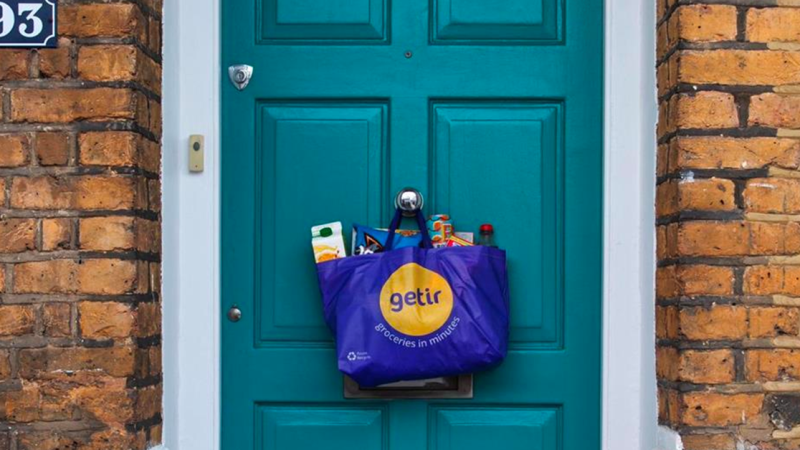As some of the biggest private sector employers in the UK, supermarkets have a responsibility to look after thousands of employees, from those in the boardroom right through to those working on the shop floor.
As the leading supermarket in the UK, Tesco employs approximately 354,000 people worldwide. Described in the grocer’s 2022 annual report as “the drivers of our success”, those colleagues are crucial to the business and so it makes sense that Tesco goes on to say that it is committed to “ensuring everyone feels welcome and has the support they need to be at their best”.
But supermarkets need to put their money – or their flexible working schemes – where their mouths are.
Tesco is by no means alone in its drive to look after employees – staff retention has been a particular focus for all grocers over the last 12 months, as the economic downturn and rising inflation continue to squeeze finances.
Usdaw general secretary Paddy Lillis told Grocery Gazette: “The cost-of-living crisis has a major impact on low-paid workers, who are disproportionately impacted by rising costs of essential items like food and energy bills.
“We have been in discussions with a range of employers and have made the case for additional support to be offered to members during the cost-of-living crisis.
“Following these discussions, several additional payments have been made outside of the normal pay review process, in companies such as Tesco and Sainsbury’s, which are welcome.
“Elsewhere we have seen one-off payments and improvements to benefits such as staff discount. We continue to make the case for an emergency response to the cost-of-living crisis, as well as longer term improvements to pay and conditions, across the sector.”
So while Sainsbury’s, Tesco and Aldi have all given their store-based and hourly-paid colleagues a number of pay rises over the course of this year in a bid to counteract the effects of rising prices to some degree, is this enough?
Co-op: time off for fertility treatments
Recently, the Co-op – which employs around 60,000 people – made headlines for a new policy that will see the retail group giving all staff the opportunity to take paid time off for fertility treatments.
In announcing the policy, Co-op’s chief executive, Shirine Khoury-Haq, revealed that she has gone through the process of fertility treatment and wants to create a supportive environment for her employees.
The policy will provide paid leave for staff to attend medical appointments while undergoing fertility treatment, including people using a surrogate. The time off will be flexible and unrestricted as treatments can be very unpredictable.
Khoury-Haq said: “It is incredibly difficult to navigate through fertility treatment while balancing work and the wider impact it has on your life.
“Having gone through all of this myself, I felt very lucky to be in a supportive professional environment; however, this isn’t always the case for so many people. I feel very proud that the Co-op is leading the way on launching a fertility policy and supporting our colleagues at a time when they need it most.”
The move was welcomed by Caroline Nokes MP, chair of the Women and Equalities Select Committee, who said: “We all recognise the pressures placed on families and individuals going through fertility treatment, and time off to support partners is such an important step forward.
“But crucially we still talk too little about these sorts of issues and I hope the Co-op is also able to create the inclusive and supportive environment that is so desperately needed.”
M&S: Flexible working hours and a four-day week
M&S has launched a new flexible working hours scheme to offer retail employees and store managers a better work-life balance.
The new scheme, named Worklife, is designed to offer over 3,000 retail managers additional days and hours to work their shifts from January 2023.
Store managers working for the retail giant will now be able to choose whether to spread their hours over five days or work a four-day ‘compressed’ week.
“We want M&S to be a great place to work and shop – that means having engaged colleagues with a good work-life balance,” said M&S group HR director Sarah Findlater.
She added: “Retail is a fast-paced industry but that shouldn’t mean missing out on the moments that matter. Whether caring commitments, the chance to get involved in your local community or to prioritise your own mental and physical wellbeing.”
Tesco: Employee assistance programme
Tesco gives staff access to a confidential employee assistance programme, which includes mental health experts, counselling, financial and legal help and career and life coaching.
A Tesco spokesperson said: “Our colleagues make our business, and we spend time listening to how they are feeling and understanding what matters to them.
“In addition to two pay rises this year, we offer an extensive reward package – which includes a number of benefits including colleague discount – and free food for colleagues in our stores. We will continue to look for ways to help colleagues with the cost of living, and how we can support a healthy work/life balance year-round.”
Lidl: Health and wellbeing 24/7
Lidl says that it recognises the “potential impact of the current climate on our colleagues health and wellbeing” and continue to offer its employee assistance programme which “can be accessed by all employees across the business”.
Operated by Care First, it offers a 24-hour service, which can range from offering advice to providing counselling on a wide range of matters, be it financial, personal or work-related.
The discounter also has dedicated personnel and welfare consultants who work proactively to support the promotion of positive wellbeing of all colleagues.
Aldi: Sunflower scheme and inclusive working
Aldi is maintaining its position as the UK’s best paying supermarket and recently announced it would be raising its starting pay for store assistants to £11.00 an hour nationally (£12.45 within London) from January 2023.
Last year Aldi partnered with Disability Rights UK to improve the experience of disabled colleagues and provide an inclusive working environment. Named the Sunflower Scheme, Aldi is training staff in a bid to offer additional assistance and support to customers and colleagues who need it.
The Hidden Disabilities Sunflower scheme allows staff to help provide a better shopping experience for shoppers who may have additional needs while also creating a more inclusive workplace for colleagues.
Sainsbury’s: Family leave policy
Sainsbury’s offers an inclusive and competitive family leave policy, enabling staff to prepare, attend and recover from fertility appointments.
The retailer also recently announced a £25 million support package for colleagues which included a further pay rise for hourly-paid colleagues as well as access to basic free food at work and an increased colleague discount too.










